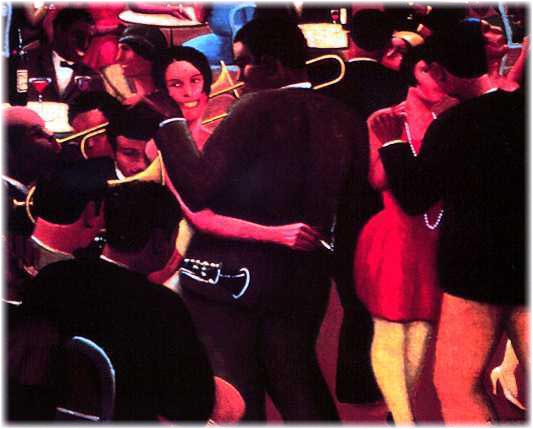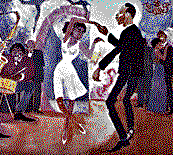
r
The Harlem Renaissance bore a new type of literature through the African Americans perspective. New York City during the 1920s and 1930, was able to read the first nationally respected literature by Black writers it highlighted their ability to establish their own culture. Beliefs founded upon the works of W.E. B. Du Bois, editor of The Crisis, aided the African American literature. Du Bois believed that black Americans could not attain equality in the eyes of the whites by emulating them. They must have pride in their own race and establish their own culture. Du Bois also believed educated Blacks should lead the rest of their race to equality. Although very different they had a common bond, they were Black, and their literature expressed their common bond. Some influential writers in the Harlem Renaissance were Claude McKay, James Weldon, and Jean Toomer. For the first time in the history of the United States did literary critics take African American writing seriously.
 There was no literary style that
defined the Harlem Renaissance. There were various forms of art
that could be classified as part of the movement. The people that
took part in the movement were committed to giving artistic
expression to the African American experience. However themes
based upon life in the American South combined with the African
American’s desire for social and political equality were
prevalent. The mid 1920’s through the 1930’s were
filled with the unique poetry, fiction, painting, music, and
theatre of black Americans. Literature appealed to the African
American middle class and to the white literary consumer.
There was no literary style that
defined the Harlem Renaissance. There were various forms of art
that could be classified as part of the movement. The people that
took part in the movement were committed to giving artistic
expression to the African American experience. However themes
based upon life in the American South combined with the African
American’s desire for social and political equality were
prevalent. The mid 1920’s through the 1930’s were
filled with the unique poetry, fiction, painting, music, and
theatre of black Americans. Literature appealed to the African
American middle class and to the white literary consumer.
The white society became intrigued with the writers of the Harlem Renaissance and began publishing them in larger numbers. For the African American writers, acceptance by the white world was not as important to them. Langston Hughes once said that the most important thing was the "expression of our individual dark-skinned selves." Literature in the Harlem Renaissance helped define a group of people, who in the past had no place in intellectual American society. With the help of great poets and writers, the Harlem Renaissance became a movement of and for the Black culture that helped become one of the greatest literary movements in history.
The Harlem Renaissance defined by a collection of black literary expressions was an extremely vital literary movement. Through Literature, the Harlem rebirth was a cultural and psychological watershed. It was an era in which blacks were finally liberated from a past oppression. It was a form of literature that was never before published. It expressed the anger and present determination to prove the self-worth of a group that was never allowed to discover themselves, proving the literary movement of the Renaissance to be extremely important. This literary movement displayed an unprecedented optimism on a novel pride in all things black. The importance of this era was also in its constancy. The Harlem Renaissance did not fade away and writers continued to work in the 1930’s. Their legacies were passed down to the next generation of writers and influenced the Civil Rights movements of the 1960’s cultural pride.
There was no literary style that defined the Harlem Renaissance. There were various forms of art that could be classified as part of the movement. The people that took part in the movement were committed to giving artistic expression to the African American experience. However themes based upon life in the American South combined with the African American’s desire for social and political equality were prevalent. The mid 1920’s through the 1930’s were filled with the unique poetry, fiction, painting, music, and theatre of black Americans. Literature appealed to the African American middle class and to the white literary consumer. The white society became intrigued with the writers of the Harlem Renaissance and began publishing them in larger numbers. For the African American writers, acceptance by the white world was not as important to them. Langston Hughes once said that the most important thing was the "expression of our individual dark-skinned selves." Literature in the Harlem Renaissance helped define a group of people, who in the past had no place in intellectual American society. With the help of great poets and writers, the Harlem Renaissance became a movement of and for the Black culture that helped become one of the greatest literary movements in history.